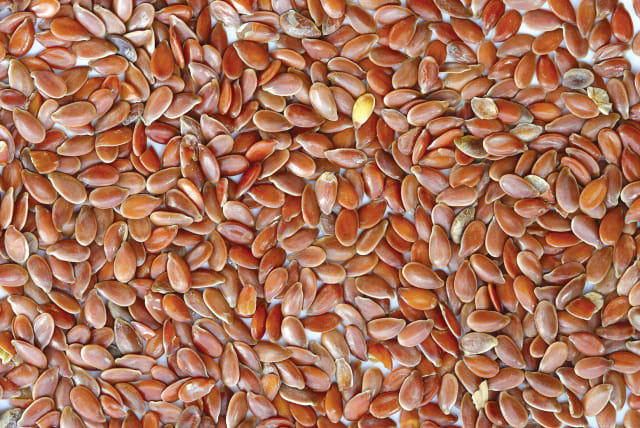Why are flaxseeds good for us?

From improving digestion, cognitive function and reducing the risk of diseases, there are many ways that adding flaxseed to your diet can help overall health, but there are also some downsides.
Flaxseed is an "underdog" ingredient that you should start paying attention to. Whether you buy them or not, you can reap some of the benefits of flaxseeds by adding just one tablespoon to your daily routine.
From improving digestion and reducing the risk of disease to improving cognitive function, there are many ways that adding flaxseed to recipes can help overall health. Although generally nutritious and beneficial for short- and long-term health, no food is perfect — and even flaxseeds can have drawbacks when not eaten in moderation.
What are flax seeds?
Flaxseed is the seed from the flax plant, also known as Linum usitatissimum. According to the Journal of Food Science and Technology, flaxseed has been used since the dawn of civilization, and has since become a common functional food ingredient — meaning it can provide benefits for specific functions or overall health of the body.
Flaxseed is also known to be one of the best sources of ALA (alpha-lipoic acid), which is a type of omega-3 fatty acid. Flaxseed can be purchased ground or taken whole and ground using a blender, or a food processor.
Nutrients in a tablespoon of ground flax seeds:
- Calories: 37.4
- Fat: 3 grams
- Saturated fat: <1 gram
- Sodium: 2.1 milligrams
- Carbohydrates: 2 grams
- Sugar: <1 gram
- Fiber: 1.9 grams
- Protein: 1.3 grams

Nutrients in a tablespoon of whole flax seeds:
- Calories: 55
- Fat: 4.4 grams
- Saturated fat: <1 gram
- Sodium: 3 milligrams
- Carbohydrates: 3 grams
- Sugar: <1 gram
- Fiber: 2.8 grams
- Protein: 1.9 grams
Consuming ground/whole flaxseed is beneficial for your health, but experts say the ground flax seeds may be slightly better than the whole flax seeds. According to Tufts University's School of Nutritional Sciences and Policy, the body is able to digest ground flaxseed more easily than whole flaxseeds.
Possible side effects of eating flax seeds:
- Flaxseeds contain phytic acid, which can reduce the absorption of minerals such as calcium, zinc, magnesium, copper and iron
- Excessive consumption of flax seeds can cause digestive problems. Eating too much fiber at once can cause bloating, gas and possible stomach pain
Ideas on how to incorporate flax seeds into the menu:
- Add them to your smoothie
- Throw them in your oatmeal
- Spread them on top of avocado toast
- Combine them in a pancake or waffle batter
- Use them as a topping for yogurt
Jerusalem Post Store
`; document.getElementById("linkPremium").innerHTML = cont; var divWithLink = document.getElementById("premium-link"); if (divWithLink !== null && divWithLink !== 'undefined') { divWithLink.style.border = "solid 1px #cb0f3e"; divWithLink.style.textAlign = "center"; divWithLink.style.marginBottom = "15px"; divWithLink.style.marginTop = "15px"; divWithLink.style.width = "100%"; divWithLink.style.backgroundColor = "#122952"; divWithLink.style.color = "#ffffff"; divWithLink.style.lineHeight = "1.5"; } } (function (v, i) { });
